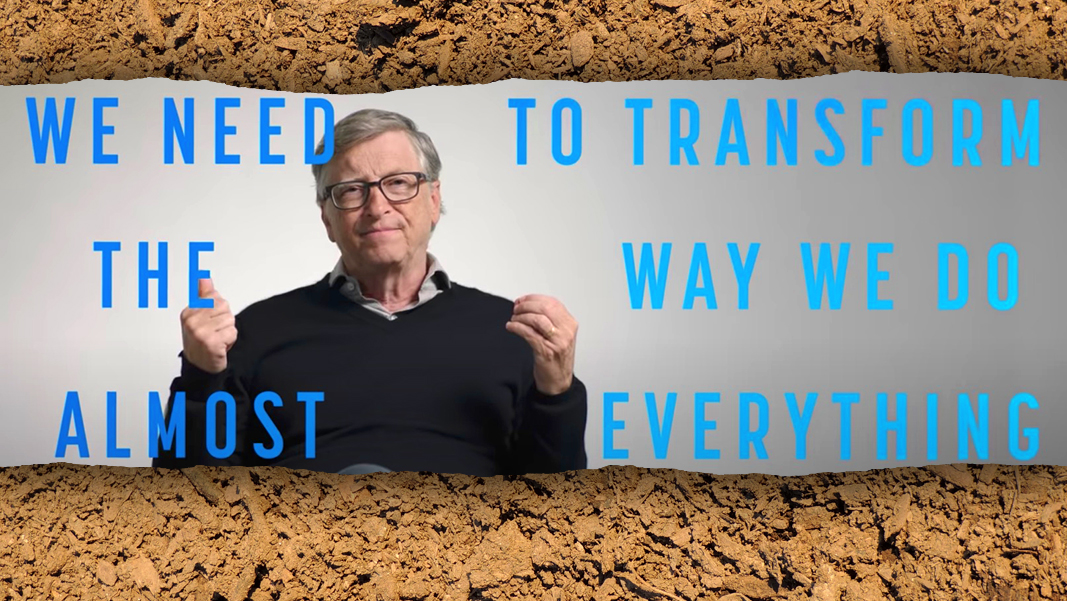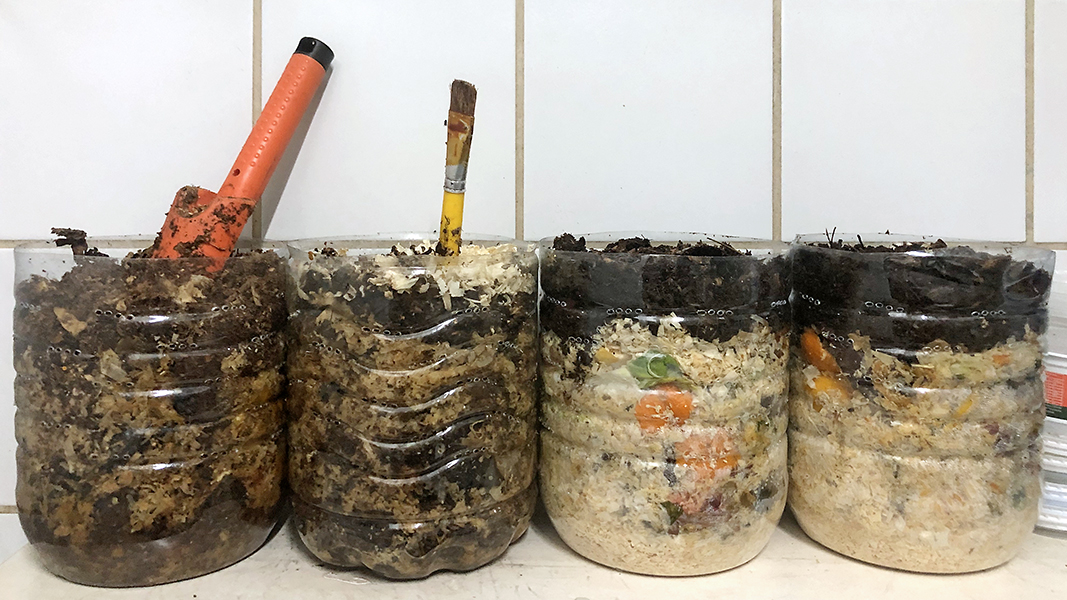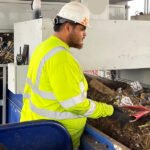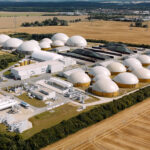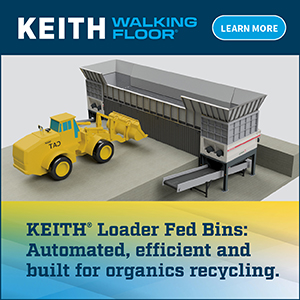Top, center: Screen capture from “How to Avoid a Climate Disaster” promotional video, GatesNotes
Nora Goldstein
 Last week, Jerry, a long-time colleague and organics recycler, sent an email to me and several others after reading Bill Gates’ new book, How To Avoid A Climate Disaster. “The book is well written and I have no issues with most of the foundations in that it makes a very complicated climate change issue more understandable,” he wrote. “My big issue is that after 230 pages, Gates makes really no mention of the importance of composting in general (yard, food, biosolids) or compost applications to reduce greenhouse gases. He mentions that he is only discussing topics that have more than a one percent ability to reduce carbon dioxide (CO2) emissions. It is true composting gives off CO2 but it eliminates methane, which has a stronger impact on climate change. The chapter on agriculture never mentions that compost use reduces fertilizer use, thus reduces production of fertilizer, a main CO2 contributor, not to mention holding nitrogen in the soil so it does not run off causing other environmental issues. The subject of alternative fuels comes up but not how anaerobic digestion (AD) could be used for food waste, etc.”
Last week, Jerry, a long-time colleague and organics recycler, sent an email to me and several others after reading Bill Gates’ new book, How To Avoid A Climate Disaster. “The book is well written and I have no issues with most of the foundations in that it makes a very complicated climate change issue more understandable,” he wrote. “My big issue is that after 230 pages, Gates makes really no mention of the importance of composting in general (yard, food, biosolids) or compost applications to reduce greenhouse gases. He mentions that he is only discussing topics that have more than a one percent ability to reduce carbon dioxide (CO2) emissions. It is true composting gives off CO2 but it eliminates methane, which has a stronger impact on climate change. The chapter on agriculture never mentions that compost use reduces fertilizer use, thus reduces production of fertilizer, a main CO2 contributor, not to mention holding nitrogen in the soil so it does not run off causing other environmental issues. The subject of alternative fuels comes up but not how anaerobic digestion (AD) could be used for food waste, etc.”
Jerry, like Bill Gates, lives in the Seattle region, where households and business have had access to curbside organics recycling for many years. “My concern is he has lived in the Seattle area his entire life and thus lived with recycling and composting for the last 30 years but seems to be completely clueless to the climate change benefits of these activities locally and how expansive the impact would be if it was done more throughout the U.S. and internationally,” noted Jerry. “There is a picture in the text that shows fish swimming through water and not knowing they are swimming through water because they do not see it and it always existed for them. Is it actually possible Bill living in Seattle for his whole life does not see the benefits of recycling and composting he grew up with and does not see the international potential? Or is our industry’s impact on climate change dynamics so minuscule that it really does not matter in the larger picture?
“Either way we need to face the reality that he is right and it does not matter in the larger scheme or we need to educate him that he is wrong and does not see the benefits because he has been swimming in the positive reality of recycling for his whole adult life.”
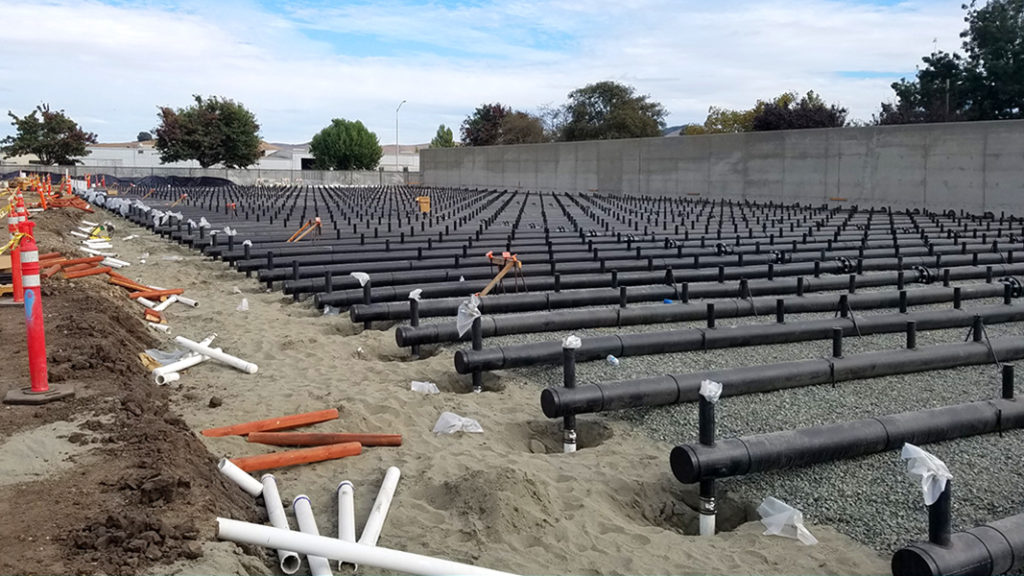
Aeration floor construction at an industrial-scale facility illustrates composting as a scalable technology solution. Photo courtesy courtesy of Napa Recycling and Engineered Compost Systems
Are We High Tech Enough?
The critically important questions raised in Jerry’s email have been churning around in my mind for the past few days. Full disclosure — I have not read Bill Gates’ book, but I have read reviews and news stories about it. The book lays out a strategy to remove 51 billion metric tons of greenhouse gases from the atmosphere every year. This passage from an article in the Guardian reflects a thought I keep having:
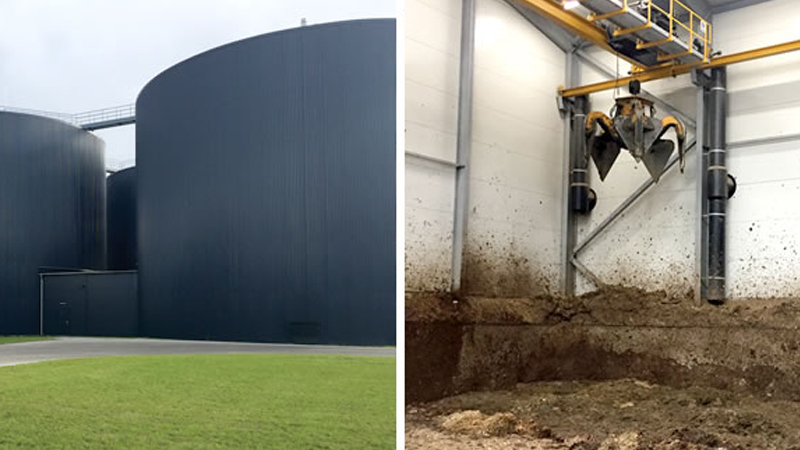
Anaerobic digestion of source separated organics helps underpin Denmark’s renewable fuel supply.
“Ever the technologist, Gates sets out a spreadsheet for getting rid of those 51bn tonnes of greenhouse gases and achieving net carbon zero emissions by 2050. We would need to use more renewables and fewer fossil fuels (which would account for roughly 27% of the reduction needed in emissions), and change how we manufacture our goods (31%), grow our food (18%), travel (16%), and keep our buildings warm or cool (6%). To achieve this, Gates provides a set of measures that could … be transposed point by point into the formal agenda for this year’s 26th United Nations Climate Change Conference, Cop26, in Glasgow. He favors a green new deal, carbon pricing and heightened corporate responsibility. But Gates’s most important proposals involve new technologies. Just as his global health initiatives specialized in scientific solutions to combat disease — ‘show me a problem and I’d look for a technology to fix it’, he writes — his principal interest is in a technological breakthrough, the environmental equivalent of the Manhattan Project or the moon landing.”
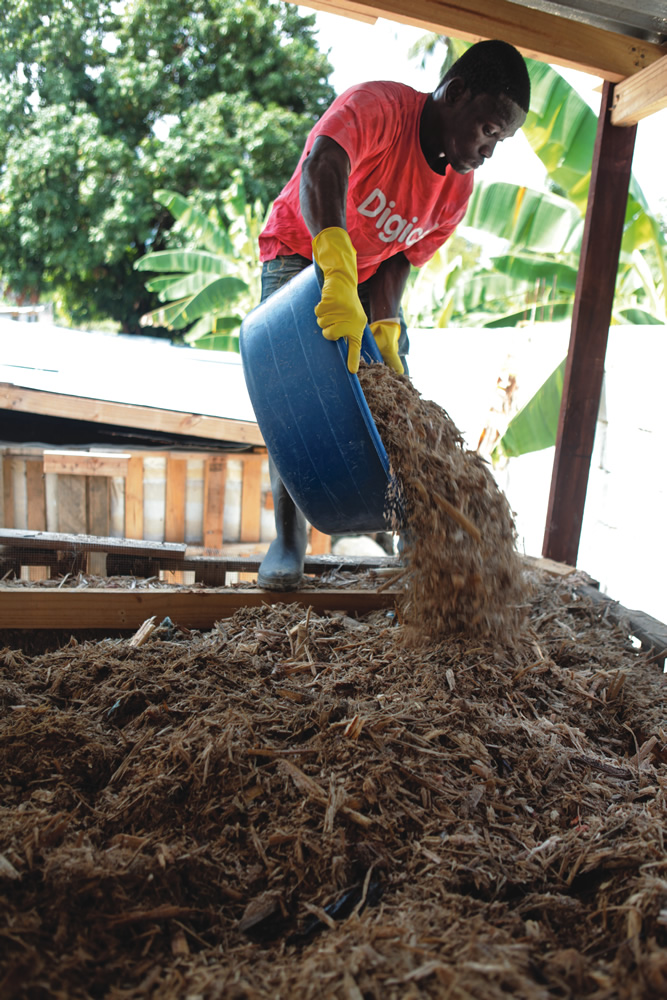
SOIL installs community-scale composting toilet systems in developing countries, such as Haiti. Photo courtesy of SOIL
This approach is clear from many of Gates’ philanthropic efforts. Take his Reinvent the Toilet initiative. “Rather than look for low tech solutions, the goal has been to find the magical machine,” explains Sally Brown, BioCycle columnist and University of Washington Research Professor, who also received Jerry’s email. “The closest his efforts have come to that is the Omni processor — a high tech contraption that when it works is able to produce pure potable water from fecal material. You can even find a picture of Bill drinking the water from the output. When this works it is terrific, a high tech and high price point toy.”
Can composting and anaerobic digestion, both technologies, rise to the level of what Gates considers a technology? He’s talking about technologies like a new kind of nuclear reactor and high tech methods to either capture carbon or scrub it out of the air. In other words, big high tech technologies, not necessarily ones that rely on biological processes to produce compost that sequesters carbon and generate renewable energy. In an interview with 60 Minutes, Gates does reference microbes, but this was in the context of meat substitutes, not the kind found in composting piles and anaerobic digesters.
A Blip Or A Blob On The Radar?
So how do we make Bill Gates and his philanthropic counterparts truly clued in to compost and digestate? At the end of his email, Jerry wrote: “The important point is that I believe the book is dramatic and telling and will help shape future research, policy decisions, and the climate change agenda and I do not want the composting and AD industry to be left out.” Stated a little differently, how can our industry be more than a blip on the global climate disaster avoidance radar?
Here are a few suggestions that Sally and I have:
- KISS. The “keep it simple, stupid” principle is not only cost-effective, it provides potential for very rapid adoption. Developing simple technologies like pumps to empty pit latrines are also a focus of the Gates Foundation. These don’t make the headlines but will likely have a much greater impact than the Omni processor — at least in our lifetime.
- Kill two birds with one stone. The connection that Gates has not made is that simple solutions to sanitation and solid waste — composting and anaerobic digestion (and the resultant compost, biogas and digestate) — are part of a much larger ecosystem that provides the solution for soil health, food security and climate change. The Gates Foundation has one soil scientist on staff (true as of 3 years ago), notes Sally. “I don’t know how many tens or hundreds are working in the fields of sanitation and global health. The connection between these problems has been made explicit. We are reading more and more about soil carbon as a potent tool for reducing atmospheric CO2 and providing a wide range of other benefits. We need to arrange for a power lunch between Rattan Lal and Bill Gates — or at least a few Zoom sessions.”
-
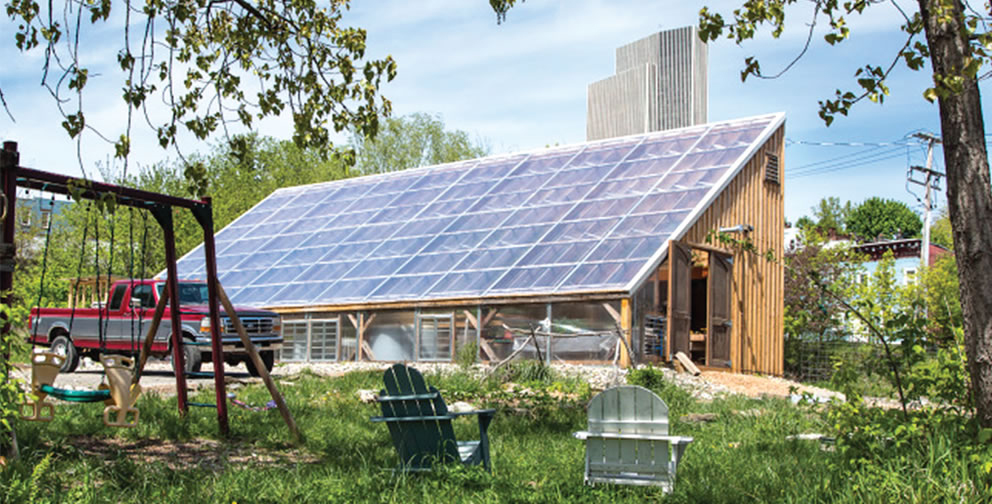
A greenhouse heated by passive solar and biothermal sources enables year-round food production on a former vacant lot. Photo courtesy of the Radix Ecological Sustainability Center
- Emphasize our role in the community ecosystem. Composting and anaerobic digestion are also part of a much larger economic and social fabric, as we are seeing play out in communities around the U.S., and globally. Compost is what restores a vacant lot to grow healthy food to be consumed by people with lack of access to healthy food in their neighborhoods. Composting — and the collection of the raw materials (i.e., food scraps, yard trimmings) — create good, local, green jobs. And those vacant lots turned into thriving gardens and urban farms help infiltrate storm water that pours down in huge rain events.
- Globally available, if we keep spreading the word. The beauty of composting and AD is that it can work on any footprint (and likely has for centuries). One of my favorites is the article we had recently on an initiative in Brazil where households can compost and grow food in their apartments.
- Let’s get elected officials hip to compost. When I responded to Jerry, one thing I mentioned is the need for champions, elected and otherwise. We have an opportunity in New York City, where one of the candidates is Kathryn Garcia, former Commissioner of the Department of Sanitation and a huge champion of composting, AD and compost use. Around the country and around the world, those on the front line of making policies that the rest of us have to live with need to understand what “Team Organics Recycling” brings to the table.


